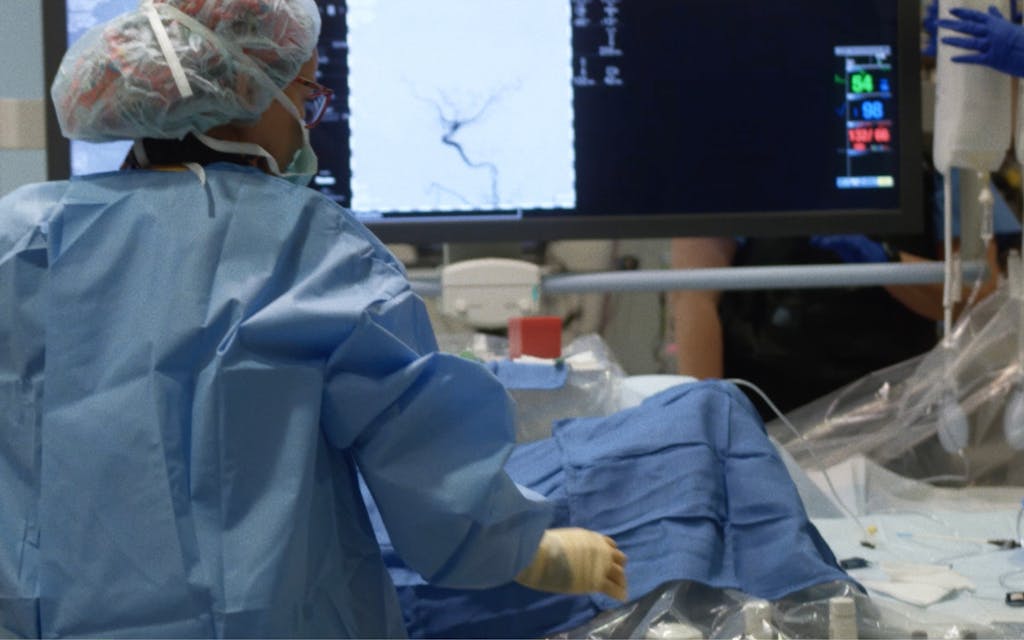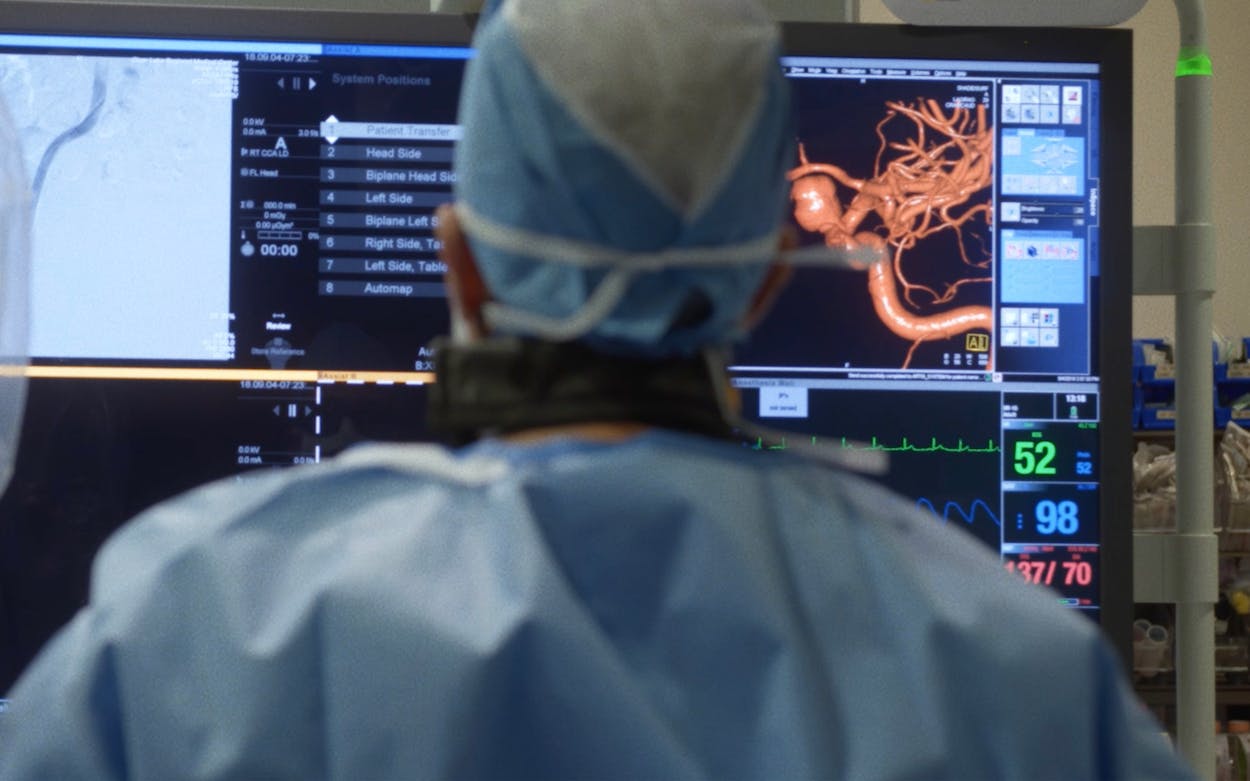Yves Bail was a high school senior. A track star at Alief Hastings. And ran the 400-meter dash. In every way, he seemed like a healthy young adult. Then one morning, he woke up to a strange “bum, bum, bum” sound coming from the right side of his body.
He collapsed to his bedroom floor, and after three failed attempts to lift himself up, a thought crossed his mind: he may never get back up again.
“For me, I was done,” recalls Yves, who was found by his parents a few minutes later, barely conscious and in an altered mental state. His body paralyzed on one side.
Yves was rushed to the ER at HCA Houston Healthcare West — a certified primary stroke center close to home. Within twenty minutes of arrival, a CTA scan revealed a large clot blocking a major artery in his brain. He was having an acute ischemic stroke.
That was three years ago, but the procedure that most likely saved his life continues to make waves.
Yves was treated with mechanical thrombectomy, a minimally invasive and relatively new procedure in which a stent retriever is used to remove clots and restore blood flow to a person’s brain. The procedure is performed by an interventional radiologist and has proven effective in limiting the risk of disability when used to treat Large Vessel Occlusion, the type of ischemic stroke that plagued Yves.

HCA Houston Healthcare has been at the forefront of this life-saving procedure from its inception, considered a medical breakthrough. It’s one of the many ways HCA Houston is committed to excelling in the field of neuroscience and establishing timelier and more effective stroke care for its patients.
A New Approach to Stroke Treatment
Stroke occurs when a vessel bringing blood and oxygen to the brain gets blocked or ruptures, causing nerve cells to die within minutes. This could result in loss of speech, movement, and memory.
“The easiest way to put it, it’s kind of a heart attack for your brain,” further explains emergency medicine specialist Dr. Byron Bassi, who helped treat Yves alongside a team of neuro-critical care experts at HCA Houston West.
Up until recently, the most that could be done for a stroke patient was to administer a tissue plasminogen activator (tPA), which is a drug used to dissolve blood clots.
While use of the clot-busting medication is still an effective form of treatment, mechanical thrombectomy is a game-changer when it comes to large vessel strokes. Like the name suggests, these blockages can be resistant to medication because of their size. But when used in conjunction with mechanical thrombectomy, stroke-related disability and mortality can be significantly reduced.
Part of this is attributed to the extended treatment time window, which plays a significant role in improving patient outcomes.
Treatment guidelines issued by the American Stroke Association recommend that large vessel strokes can safely be treated with mechanical thrombectomy up to 16 hours after a stroke, compared to the 4.5-hour time window for tPA alone. Under certain conditions, and based on advanced brain imaging, some patients may even have up to 24 hours.
In Yves’ case, he received his treatment well before that. Within three hours from the onset of his stroke symptoms, he underwent emergency mechanical thrombectomy surgery; and within six minutes after puncture, his condition was stabilized.
“EMS and our neuro-critical care team worked together to optimize onset treatment time,” says Bassi. “When it comes down to it, we want the same thing — to minimize brain injury and maximize patient recovery.

The Road to Recovery
Yves remained in the hospital for 13 days. During his stay, he received speech therapy to help him recover some of his memory loss.
“I was just trying to remember things, and then I couldn’t remember,” says Yves, recalling one instance when he mistook a picture of a pen for a ball.
As a non-native English speaker, remembering words in English was especially difficult. Eventually, Yves had a breakthrough.
“I felt like Yves was very optimistic about his recovery. He did not seem scared,” says Dr. Ashley Emmet, who was Yves’ speech pathologist. “He kept asking me when he was going to go back to school. And I thought ‘maybe you shouldn’t go back to school so soon,’ but he had it in his head.”
After he was discharged from the hospital, Yves continued his rehabilitation at home. Just a few months later, Yves walked across the stage to accept his high school diploma.
Today, now completely recovered, Yves is a college student studying to become a doctor.
“I try to make every moment a good moment because one day, a friend that you talk with might not be there,” says Yves. “That’s why I want to be a doctor. A doctor that will bring them positiveness, bring them some love.”






